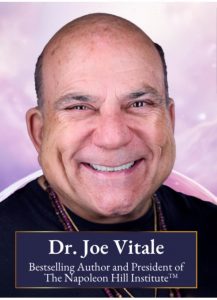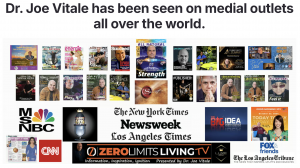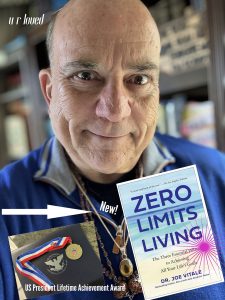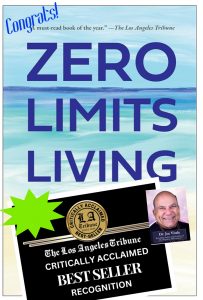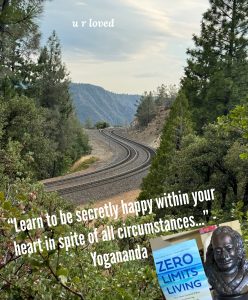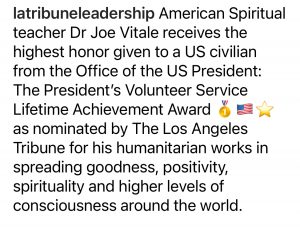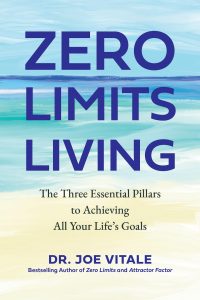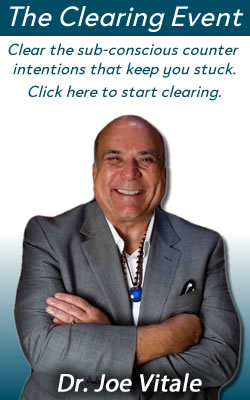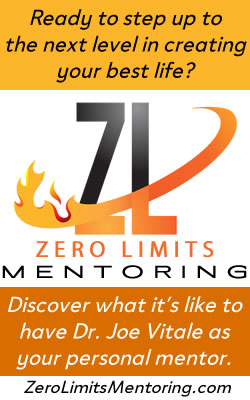Tag: attractor factor
2025 Book Title Survey
Beware Science
I love and hate science.
I love that science continues to try to understand the world at large, and I hate that it is always back pedaling.
I asked ChatGPT how science gets away with this, and to offer examples of when it works, and when it doesn’t.
Here’s the report…
Science: Correcting Itself One Study at a Time
Science is an ever-evolving field. Through rigorous research and experimentation, scientists uncover new insights about the world. However, not every study stands the test of time.
Some findings are later proven wrong, while others continue to hold up under scrutiny.
In this post, we’ll look at five famous scientific studies that turned out to be incorrect, balanced by five that, so far, remain reliable.
5 Studies That Turned Out to Be Incorrect
1. The “Fat is Bad” Study (1950s–1970s)
For decades, fat was labeled as the ultimate dietary villain. A series of studies, led by researcher Ancel Keys, suggested that dietary fat, particularly saturated fat, caused heart disease. This led to a low-fat craze that dominated the food industry. However, recent research has shown that the relationship between fat intake and heart disease is more complex. Healthy fats, like those found in avocados and nuts, are actually beneficial, and sugar and processed carbs may be more harmful than previously thought.
2. Stanford Prison Experiment (1971)
Psychologist Philip Zimbardo’s famous Stanford Prison Experiment suggested that people would quickly conform to abusive behaviors when given authority. The study has been widely criticized for ethical issues, poor methodology, and researcher bias. Participants were often encouraged to act out extreme behaviors, and the results have been difficult to replicate. Today, it’s considered an example of flawed research.
3. Cold Fusion (1989)
In 1989, scientists Stanley Pons and Martin Fleischmann claimed to have achieved cold fusion, a process that would produce unlimited, clean energy at room temperature. The announcement was met with excitement, but soon other researchers failed to replicate the findings. Cold fusion has since been debunked, and it remains a controversial topic.
4. Vaccines Cause Autism (1998)
One of the most damaging incorrect studies was the 1998 paper by Andrew Wakefield that falsely linked the MMR vaccine (measles, mumps, and rubella) to autism. The study was later retracted due to unethical practices and poor methodology, and numerous studies since have found no connection between vaccines and autism. However, the initial report sparked a dangerous anti-vaccine movement.
5. Polygraph Tests as Lie Detectors (1920s–Present)
The polygraph, or lie detector test, has been used for decades to determine whether someone is telling the truth based on physiological responses like heart rate and sweating. However, numerous studies have shown that polygraph tests are unreliable. Stress, fear, and anxiety can produce false positives, and some people can lie without showing physical signs. As a result, polygraphs are not admissible in many courts.
5 Studies That Have Stood the Test of Time (For Now)
1. Theory of General Relativity (1915)
Albert Einstein’s theory of general relativity fundamentally changed our understanding of gravity. It predicts how massive objects like planets and stars warp space-time. This theory has passed many tests over the past century, including the recent detection of gravitational waves in 2015, further proving its accuracy.
2. Double Helix Structure of DNA (1953)
The discovery of the double helix structure of DNA by James Watson and Francis Crick remains one of the most significant breakthroughs in biology. Since its discovery, the structure of DNA has been the foundation for numerous advances in genetics, medicine, and forensic science, and it continues to guide research in the field.
3. Evolution by Natural Selection (1859)
Charles Darwin’s theory of evolution by natural selection explains how species change over time due to environmental pressures. Over 150 years later, the theory remains one of the cornerstones of modern biology. It has been supported by countless studies in fields ranging from paleontology to genetics.
4. Germ Theory of Disease (19th Century)
Proposed by Louis Pasteur and Robert Koch, the germ theory of disease revolutionized medicine. It states that microorganisms are responsible for many diseases. This theory has led to the development of vaccines, antibiotics, and modern hygiene practices, saving countless lives. To this day, it remains a fundamental principle of medical science.
5. Plate Tectonics (1960s)
The theory of plate tectonics explains how the Earth’s outer shell is divided into several plates that move over the mantle, causing earthquakes, volcanic activity, and the formation of mountains. This theory has been supported by evidence from seismology, geology, and oceanography, and it remains the best explanation for many geological processes.
Conclusion
Science is a self-correcting process.
While some studies that were once accepted have been disproven, others have withstood decades of scrutiny and continue to be the foundation of our understanding.
What’s important is that science remains open to new evidence and willing to adapt. Through this process, our knowledge grows stronger and more accurate over time.
All of the above was from ChatGPT.
As I hope you know by now, ChatGPT is known to fabricate case studies, so take the above with a grain of salt.
Again, I love science, but I’m also aware that whatever it reports as fact today can be negated as incorrect tomorrow.
Expect Miracles.
Ao Akua,
Dr Joe
Secretly Happy
Imagine you’re walking through a busy city street, surrounded by the noise of traffic, the rush of people, and the chaos of everyday life.
You notice a person sitting quietly on a bench, a serene smile on their lips, completely at peace with the world around them.
They’re not scrolling through their phone, not lost in thought, just… happy.
Happy? Here?
You might wonder, “How on earth can they be so content in the midst of all this madness?”
This image is the essence of Paramahansa Yogananda’s wisdom when he said –
“Learn to be secretly happy within your heart in spite of all circumstances.”
Secretly happy?
In spite of circumstances?
What does this really mean, and more importantly, how can you and I achieve it in our own lives?
Yogananda is not suggesting that we should ignore our problems, pretend everything is fine, or plaster a fake smile on our faces.
He’s talking about cultivating a deep, inner well of happiness that isn’t dependent on external factors.
This is the kind of happiness that isn’t shaken by a bad day at work, an argument with a loved one, or even the big life challenges that come our way.
It’s a secret happiness—something personal, internal, and incredibly powerful.
So, how do you tap into this secret source of joy?
Here are possible steps…
**1. Start with Gratitude: The Happiness Fuel**
Gratitude is like the kindling that starts the fire of happiness.
When we take a moment to appreciate what we have—our health, a good cup of coffee, the love of a pet—it’s like sending a signal to the universe that we’re ready to receive more joy.
For instance, think about your morning routine.
Instead of rushing through it, take a moment to savor it.
Smell the coffee, enjoy the warmth of the shower, and appreciate the quiet before the day begins.
These small acts of mindfulness can transform ordinary moments into pockets of joy.
**2. Embrace the Power of Perspective**
Have you ever noticed how two people can experience the same event and have completely different reactions?
One person might get upset because it started raining during their picnic, while the other dances in the rain.
The difference?
Perspective.
Choosing a positive perspective doesn’t mean you ignore reality; it means you choose how you respond to it.
If you’re stuck in traffic, instead of fuming, consider it a chance to listen to your favorite music or catch up on a podcast.
If you’ve had a setback, see it as a learning opportunity rather than a failure.
The more you practice shifting your perspective, the easier it becomes to find that secret happiness, no matter what.
**3. Connect with Your Inner Self**
Yogananda was all about tuning in to your inner self.
This isn’t about escaping into your own world, but rather about finding a sense of peace and contentment that comes from within.
Practices like meditation, deep breathing, or simply spending time in nature can help you reconnect with this inner calm.
For example, start your day with just five minutes of meditation.
Sit quietly, focus on your breath, and let go of any thoughts that come to mind.
This simple practice can help you carry a sense of peace with you throughout the day, making it easier to stay happy even when things don’t go your way.
**4. Let Go of What You Can’t Control**
There’s a lot in life that we can’t control, and that’s okay.
The weather, other people’s actions, the past—these are all beyond our reach.
But what we *can* control is our reaction to them.
Yogananda’s secret happiness comes from accepting this truth.
Instead of wasting energy worrying about things you can’t change, focus on what you *can* do.
Maybe you can’t control a rainy day, but you can decide to bring an umbrella, dress warmly, or plan an indoor activity instead.
By letting go of what you can’t control, you free up mental space for happiness.
**5. Spread the Joy**
Finally, happiness isn’t something to keep all to yourself.
It grows when you share it.
Simple acts of kindness, like complimenting a coworker or helping a neighbor, not only brighten someone else’s day but also deepen your own sense of joy.
Remember, happiness is contagious.
When you’re secretly happy within your heart, people will notice.
They’ll wonder what your secret is and may be inspired to find their own inner joy.
**Putting It All Together**
Learning to be secretly happy within your heart, despite all circumstances, is a journey—a daily practice of gratitude, perspective, inner connection, acceptance, and sharing.
It’s not about being happy all the time or ignoring life’s challenges, but about cultivating a resilient joy that stays with you, no matter what life throws your way.
So next time you find yourself in a less-than-ideal situation, take a deep breath, smile inwardly, and remember Yogananda’s words.
“Learn to be secretly happy within your heart in spite of all circumstances.”
Your happiness is your secret, and it’s always within your reach.
Just like that serene person on the bench, you too can find peace and joy in any circumstance.
It’s your superpower, your secret weapon—and the best part?
It’s already inside you, just waiting to be discovered.
Doesn’t that thought alone help make you happy?
Expect Miracles.
Ao Akua,
Dr Joe Vitale
US President Lifetime Achievement Award to Dr. Joe Vitale
On May 18 2024 I was given the US President Lifetime Achievement Award in Temecula, California.
The Los Angeles Tribune nominated me and the Oval Office approved it.
Words still fail me.
All I can say is “Thank you.”
Gratefully,
Dr. Joe Vitale
PS – My latest book is available for preorder: www.ZeroLimitsLivingBook.com

